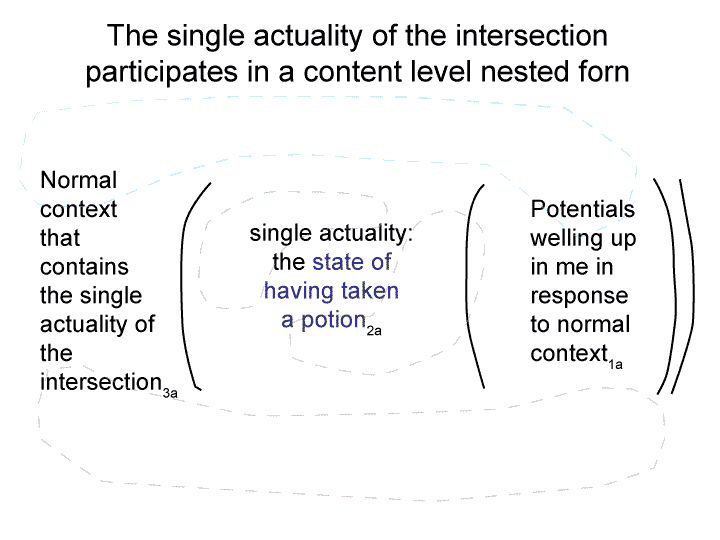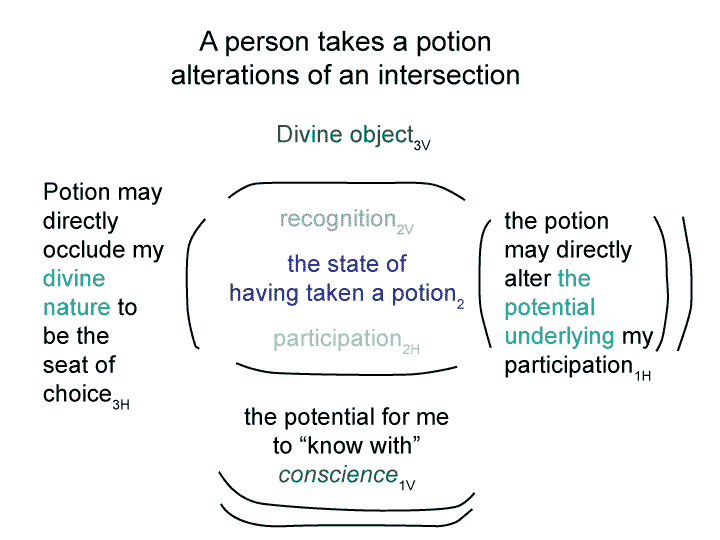Man and Sin by Piet Schoonenberg (1964) 2.1FH-2
[The idol substitutes for God, but it cannot fully exclude the Father and the Son.
If the idol could exclude God, the tension between recognition and participation would collapse and the person would become demonic. Some call it ‘possession’.
In this example, God’s action merely heightens the drunk’s awareness of ‘how the booze has messed ‘him’ up and how awful ‘his’ body feels’.
“What,” the drunk may ask “himself”, “am I doing to myself?”
This question contradicts the recognition of his idol.
Furthermore, this question undermines the exclusivity of the normal context contextualizing the single actuality of recognition and participation.]


